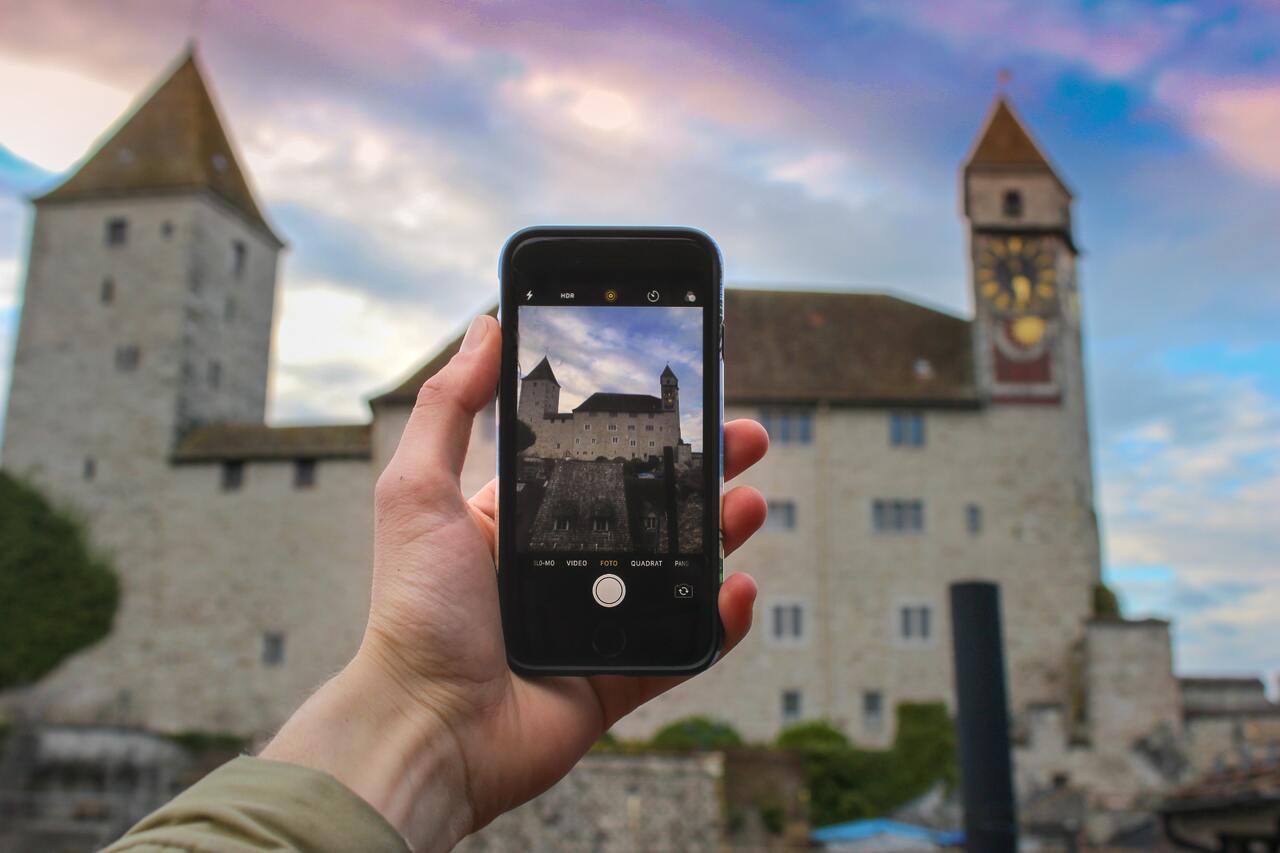Skift Take
The use of technology in the travel industry has continued to boom in recent years, and here's a look at some of the biggest tech trends in travel.
Travel brands have increasingly looked to use emerging technology in their operations, especially generative artificial intelligence. What are major trends in travel technology? We put the question to Ask Skift, our artificial intelligence chatbot. It used information appearing in both our past news coverage and Skift Research. We also conducted additional reporting.
What Ask Skift Said:
Some of the major trends in travel technology in recent years, as outlined in various Skift articles, include:
Mobile Innovation: U.S. companies like Airbnb and HotelTonight (which Airbnb later acquired) were redefining the lodging sector in 2013 through mobile technology. Larger digital giants like Google, Apple, and Nokia were also influencing the transportation with their mapping and local information offerings.
Use of Tech for Competitive Advantage: Many travel companies were tapping into tech products a decade ago to gain a competitive advantage (as they are today). Tech was helping travel providers offer customers relevant deals and accessible customer service. In addition, companies are using big data to streamline operations, cut costs, and boost revenues.
Smart Design: Another trend was the rise of smart design in travel, influenced by the “Apple-ification” of the world. This trend is seen in more design-centric airports, efficient hotels, and generally more design-meets-UX savvy sectors in travel.
Data-Driven Curation: There was an increasing need for better curated experiences in travel due to the overwhelming choices in search results for online booking. Booking providers were trying to deliver well-targeted information — and this is still a big priority — to travelers by mining and analyzing all kinds of data.
Ask Skift Is the AI Chatbot for the Travel Industry
Go deeper into the business of travel with Skift’s new AI chatbot.
What Else You Need to Know
Travel Technology Reporter Justin Dawes earlier this year listed five travel technology trends worth following in 2023, the first of which was airport biometrics. Singapore announced in September that its Changi Airport will go completely passport-free starting in 2024 when it implements an automated immigration checkpoint using passengers’ biometric data. Passengers will undergo a facial scan that verifies their identity instead of presenting their passport to an immigration officer.
Dubai International Airport is also no longer requiring travelers to have passports or boarding passes. Instead, passengers will be able to use their face as their ID.
Meanwhile, travelers going on trips via virtual and augmented reality has been another major trend in travel technology, with the global virtual tourism market expected to grow to more than $847 billion by 2028. Virtual reality can help give travelers an idea of what to expect if they choose to visit a certain destination.
Travel brands — such as the Singapore Tourism Board — are also looking to augmented reality to boost interest in attractions. The organization’s CEO Keith Tan said it wants to use the technology to show visitors what World War II was like at Fort Siloso, a major attraction in the city-state.
Another booming trend in the rise of digital payments, with non-cash transaction volumes expected to jump to $2.3 trillion by 2027. Skift Research said in an October 2023 article that, 70% of hotels worldwide use payment processing programs, and payment technology should be viewed as a revenue-generating opportunity for hotel owners.
In addition, although some hotels have increased their use of technology coming out of the pandemic, although tech reporter Dawes wrote in December 2022 that other hotels have dragged their feet in implementing new technology. Skift reported in January 2023 that several prominent hotel companies launched tech partnerships to modernize operations and services, and ongoing labor shortages were in part driving hotels toward more tech adoption.
Furthermore, some hotel executives are bullish on artificial intelligence and view it as a way to generate more room revenue. Jeff Edwards, a consultant and former IHG executive, said generative AI could help companies improve revenue management.
Finally, a growing number of major corporations, including Google, Meta, Expedia, Kayak, Booking.com and others have released AI-powered tools that can be used for trip planning. And TUI Group released a ChatGPT-powered chatbot on its UK app this July, the first part of an expected of rollouts that integrates generative AI into the company’s tech.
Ask Skift Is the AI Chatbot for the Travel Industry
Go deeper into the business of travel with Skift’s new AI chatbot.
Skift AI Travel Newsletter
AI coverage across travel sectors that’s focused on separating trendy moves from good ideas – in your inbox every Friday.
Have a confidential tip for Skift? Get in touch
Tags: airbnb, artificial intelligence, ask skift, augmented reality, biometrics, google, hoteltonight, meta, mobile, Singapore Tourism Board, virtual reality
Photo credit: The use of technology is continuing to evolve in travel. PxHere
